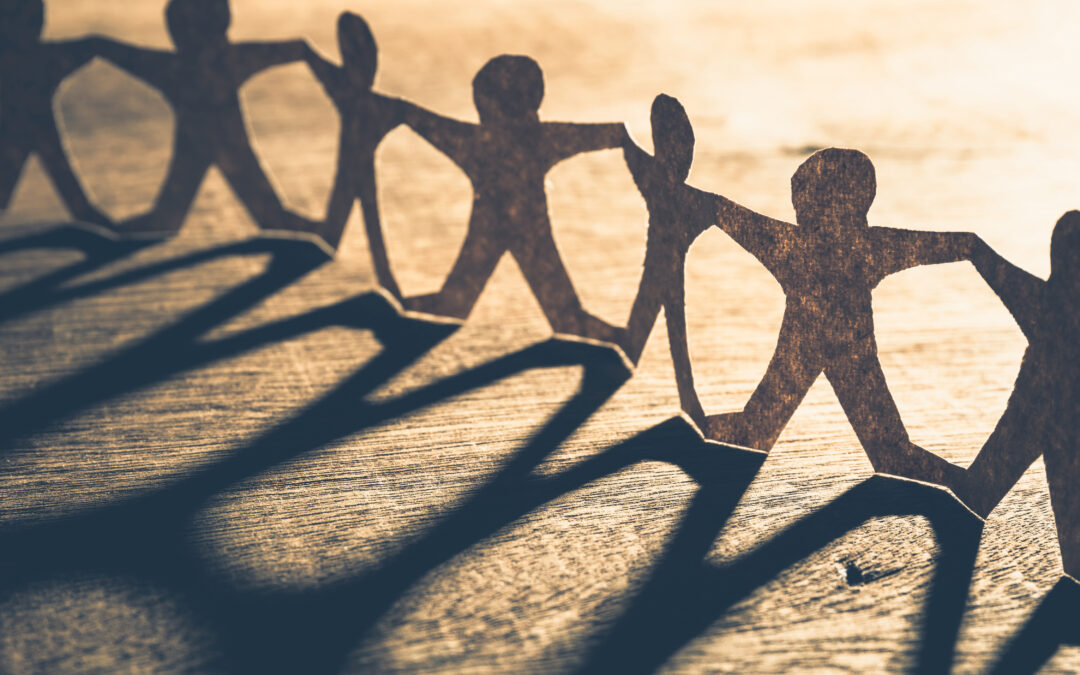The American workplace is now a grave new world of on-site and remote work assignments and navigating through this strange landscape is going to take strong close-knit teams. Fortunately, well-planned team bonding activities can light the way.
Team bonding activities open eyes and hearts
To rev up for a major new project, nothing works better than a solid team building event. It can get everybody geeked to dig in and get the job done. The focus is simple: pull together and work together. Effective team building activities help everyone rally around one specific goal.
Sometimes, though, you need to invest time in just being a team—not doing, but being. You know, human beings being human. Being aware of each other as people with outside interests, family lives, and cultural backgrounds. When there are a lot of differences among those categories, team bonding activities can help participants discover how much they actually have in common as people and not just as colleagues.
Team bonding builds soft skills
Well developed soft skills bridge social gaps so that we can work effectively and cooperatively. Think: problem-solving, critical thinking, collaboration, leadership, communication, adaptability, and active listening skills.
From Experience.Dropbox.com: “It doesn’t matter how good someone is at a specific task, if they do not have good soft skills, they will not be that valuable of a team member. Soft skills are needed to understand the goals and vision of the company, to recognize the intent of the work, to both communicate and receive ideas, to foster a comfortable and safe working environment and to enable a worker to reach their maximum potential.”
Developing these skills takes hard work but the ROI makes it worth it. We can all benefit from activities that make us better teammates.
Team bonding and relationship building
And of course, the foundation for all collaborative efforts is healthy relationships. Like soft skills development, relationship building takes work. Fortunately, the more emotional intelligence you have the easier it gets. That’s because emotional intelligence develops self-awareness.
The more aware you are of your own emotions and interpersonal motives, the greater your sensitivity to the feelings of others. And team bonding activities are perfect opportunities for colleagues to practice using their emotional intelligence. These events can help us learn the best ways to communicate with each other. And we all need to learn how to customize collaborative strategies to fit the personalities around us.
Team bonding and conflict resolution
Unfortunately, since the pandemic, workplace conflict has morphed in some pretty surreal ways. There’s the conflict between remote and on-site workers which makes some off-site workers feel less valued and less promotable.
Some workers are worried about the pros and cons of vaccinations, mandatory masks, and protocols for interoffice social distancing. And multi-generational conflicts between Boomers vs. Millennials vs. GenXers have widened rifts between teammates.
Forbes.com reported that “In the experience of many mediators and conflict coaches, the last 18 months have seen an increase in team mediations. Some have been driven by specific pandemic-related issues, such as colleagues not respecting social distancing or safety protocols. Others are indirectly related, such as team behaviors on video calls.”
And on-going conflicts between employees and employers about flexible schedules, hybrid work opportunities, child care, and other issues imploded into what we now call “The Great Resignation”.
Kindness is contagious
So what happens among the war-weary troops that are left when the dust finally clears? Team bonding activities can promote healing, speed up conflict resolution, and transform toxic workplaces into healthier corporate cultures.
And charitable giving workshops are the best activities to bond individuals into trusting, supporting teammates. Whether you donate a dinner, a wheelchair, a bike or a backpack full of school supplies, what you give doesn’t matter as much as the act of giving itself. Giving stimulates feelings and empathy, kindness, and compassion for others who are less well off than yourself.
And those feelings of kindness for needy strangers are infectious. During charitable team bonding activities, an irritating coworker may become an ally or even a friend after you spend the day building a cache of gifts to donate to needy neighbors. That’s what team bonding is all about—or at least, it should be, right?

